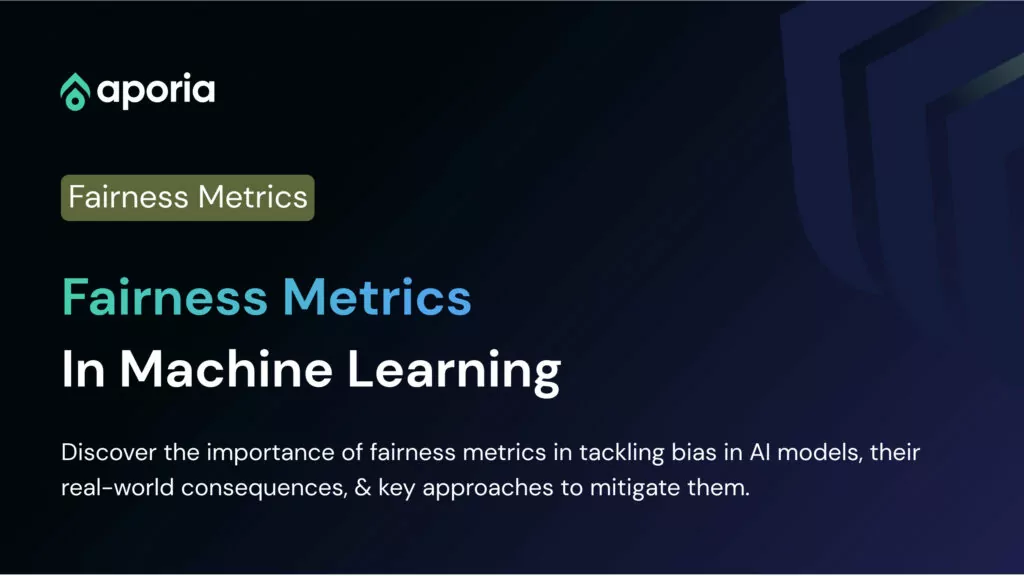
Fairness Metrics In Machine Learning
During their extensive training and learning process, machine Learning engineers will inevitably encounter ML bias and fairness questions, which casts...
Aporia has been acquired by Coralogix, instantly bringing AI security and reliability to thousands of enterprises | Read the announcement
Today, machine-learning systems are incorporated and integrated into countless industries and businesses that we rely on, including financial institutions, the housing industry, food and beverage, retail, and numerous others. As a result, they must meet both societal and legal standards to make decisions that are fair and inclusive.
We can determine that we would not want models to be negatively biased on the basis of characteristics such as religion, race, gender, disabilities, and political orientation.
In the simplest form, we can define fairness as equal results achieved for different individuals unless a real justification, in the form of a meaningful distinction, can be drawn between them. In fact, we’re still in the process of defining a whole new vocabulary and set of concepts to talk about fairness.